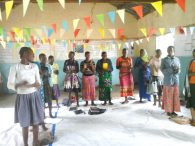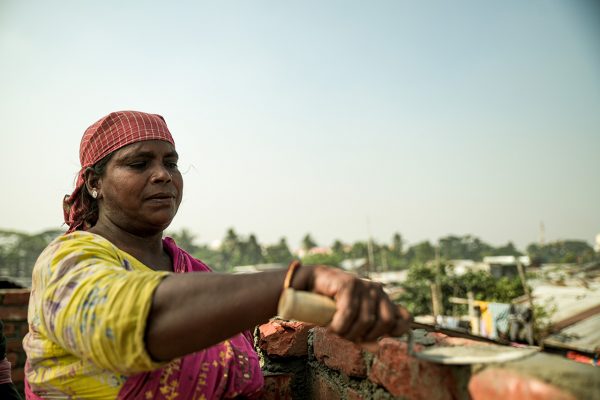Reading Time: 3 minutes
Maria Joseph got pregnant when she was in class 7, and had to drop out of school. She stopped stepping out of home and spent her time helping with household chores. Not too long ago, she heard about BRAC’s study clubs from a friend. She soon became a member of a club in Kitunda district. “I had lost all hope. When I got pregnant, everybody told me I had ruined my life. I was shunned by my family and friends. Thanks to the study club, I now have hope for my future and my baby’s future. People will respect me now.”
Maria Joseph got pregnant when she was in class 7, and had to drop out of school. She stopped stepping out of home and spent her time helping with household chores. Not too long ago, she heard about BRAC’s study clubs from a friend. She soon became a member of a club in Kitunda district. “I had lost all hope. When I got pregnant, everybody told me I had ruined my life. I was shunned by my family and friends. Thanks to the study club, I now have hope for my future and my baby’s future. People will respect me now.”
In Tanzania primary school enrolment ratio with regards to gender parity is 96 per cent for males and 97 per cent females. Unfortunately, the same cannot be said about secondary education level in which 76 per cent of girls are missing out compared to just three per cent at primary level.
Poverty still remains the biggest challenge to secondary education for girls in Tanzania. Since secondary education is neither free nor compulsory, paying the fees is a major obstacle for parents. Furthermore, the low value placed on education make it acceptable for children to stay home and help their families instead. Social and cultural factors such as early marriage and early pregnancy force girls to drop out. Another contributing factor is unequal gender relations; girls are expected to carry a greater workload from a young age like raising children, doing household chores and earning a living for the family. In Tanzania, more than 8,000 girls drop out of secondary school annually due to pregnancy. Travelling long distances to school is another major barrier, especially for girls, as it holds potential risks of rape and abuse on the way.
Considering these complex social barriers, BRAC Mandeleo Tanzania has started an innovative intervention under the Girls’ Education Challenge (GEC) project funded by DFID. Instead of bringing students to schools, it takes the schools closer to the communities. The project’s major component currently operating in Tanzania, is the study club. Students attend classes in the morning, and in the afternoons, these clubs turn into safe spaces where the same tutor offers them life skills training. Girls also learn about sexual and reproductive health, HIV, early marriage, pregnancy, and about their rights and negotiation skills. The clubs target 12 to 19-year-olds from marginalised backgrounds who have dropped out of secondary schools or failed in their primary schools. The clubs are registered under the government’s Institute of Adult Education (IAE).150 study clubs will run under five open schools registered with the IAE in Dar es Salaam, Mwanza, Shinyanga, Tabora and Singida. The study clubs also implement a self-learning curriculum under the IAE. A tutor, chosen from within the community, is then trained by IAE.
In response to the inability to afford the costs of education, BRAC’s study clubs provide books and education materials free of cost. It also covers the registration fees and fees for the qualifying exam. Each study club has one tutor trained by IAE. To motivate parents to keep their daughters in school, their mothers are linked to our microfinance programme. They are offered access to income-generating activities, and are encouraged to save for the future education of their children.
The hope is to cause a shift in attitude and behaviour among girls so that they are better positioned to make the right choices. Parents and community members are actively engaged in the study clubs so that they feel motivated in investing in their daughters’ education.
Rafiath Rashid Mithila is the senior manager of education at BRAC International.
Tasnima Matin is deputy manager of communications at BRAC International.






